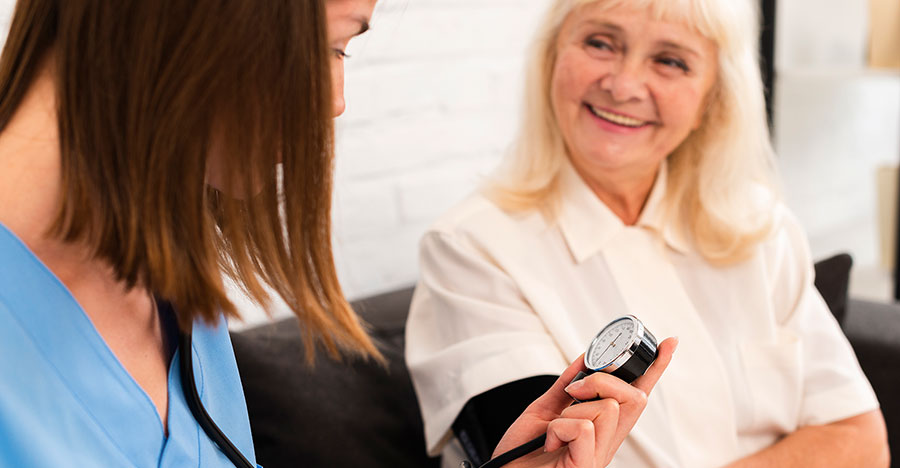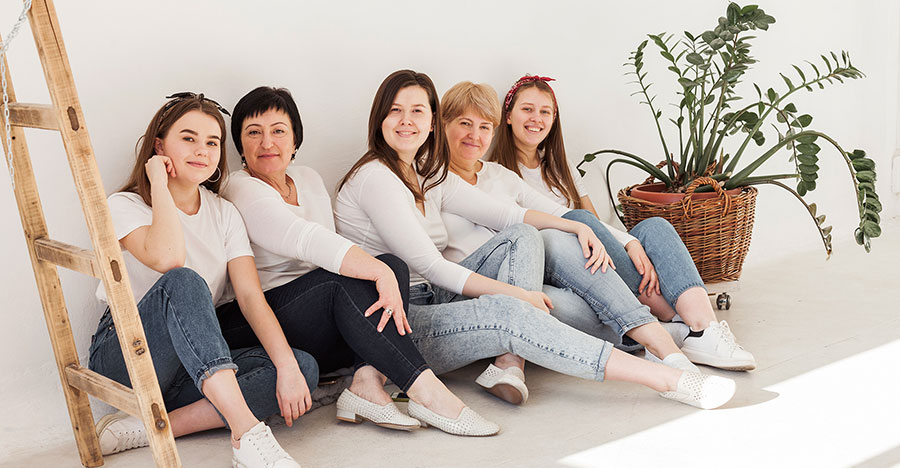Women’s bodies change significantly over time, making certain health screenings more relevant than others, depending on your life stage. August marks Women’s Month, so here’s a checklist for important screenings at each decade, and digital tools to help you stay on track.
We’ve all heard the saying, “Prevention is better than cure.” It’s also the simpler, most effective and affordable option. So why is going for health screenings something we often procrastinate?
“Knowing the results from just a few important screening tests can help in the early detection of diseases like diabetes, hypertension and cancer. This in turn can lead to preventive measures or more successful treatment, which could have incalculable value in time, money and quality of life,” says Deepak Patel, Clinical Specialist at Discovery Vitality.
“At various stages of our lives, we prioritise these three factors differently – and over the years, work, marriage, kids and personal goals place different demands on our time and resources. Maintaining good health means there’s more of us to give to the things in our lives that matter most, whatever stage of life we’re in,” adds Patel.
Recommended preventive screenings for women over time
Taking preventive health measures is relevant in every decade, but the risks increase with age, so it’s important to keep track and prioritise good healthy behaviours in order to stay healthy for as long as you can.
Here’s a list of recommended screenings for women from their twenties to their sixties and beyond.
| Age | Recommended screening or preventive measure |
Frequency | Top health tips for women in each life stage |
| 20s | Pap smear | Once every three years | If you’re sexually active, you need to protect your body. Talk with your partner about how to prevent sexually transmitted diseases or an unwanted pregnancy, and get an HPV (human papillomavirus) vaccine to protect you from possible cervical cancer.
Your twenties are also a good time to build a good foundation for heathy eating habits. Cut down on junk and fast food and learn cooking skills to save yourself time when life gets busier in your thirties. |
| Dental check-up | Once a year | ||
| HIV test | Once a year | ||
| Flu vaccination | Once a year | ||
| HPV vaccination | (If not yet completed) | ||
| 30s | Pap smear | Once every three years | If you are (or would like to fall) pregnant, take a daily supplement containing 0.4 to 0.8 mg (400 to 800 µg) of folic acid and eat a diet rich in calcium. Dairy products provide the best sources of calcium.
In general, prioritise good nutrition and make time for cooking and eating healthy meals. It’s also important to vaccinate yourself against flu. If you are pregnant, this decreases the chances of your baby contracting flu in their first six months. |
| Dental check-up | Once a year | ||
| HIV test | Once a year | ||
| Flu vaccination | Once a year | ||
| 40s | Pap smear | Once every three years | Cervical cancer is highly preventable and treatable if caught early, so it’s a good idea to screen for cervical cancer.
You can extend the usual 3-year Pap smear screening interval to 5 years by combining HPV testing with a Pap smear. Women in their 40s can talk to their doctor about when to start breast cancer screening and how often to get a mammogram. When you start depends on your family history and risk profile. |
| Dental check-up | Once a year | ||
| HIV test | Once a year | ||
| Flu vaccination | Once a year | ||
| 50s | Pap smear | Once every three years | Breast cancer screening means checking your breasts for cancer before there are signs or symptoms of the disease.
Many expert organisations recommend that if you are 50 to 74 years old and are at average risk for breast cancer, you should get a mammogram every two years. |
| Dental check-up | Once a year | ||
| HIV test | Once a year | ||
| Flu vaccination | Once a year | ||
| Mammogram | Once every two years | ||
| Colonoscopy | Once every ten years | ||
| 60s+ | Pap smear | Once every three years | Every year, thousands of older adults suffer serious health problems from diseases they could be vaccinated against, like shingles, flu, and pneumococcal disease. Talk with your doctor about which vaccines are recommended to protect you.
Also ask your doctor about vitamin D supplements for strengthening your bones. To reduce your chances of a fall, do at least 150 minutes of moderate-intensity aerobic physical activity (such as brisk walking) every week. |
| Dental check-up | Once a year | ||
| HIV test | Once a year | ||
| Flu vaccination | Once a year | ||
| Glaucoma screening | Once a year | ||
| Mammogram | Once every two years | ||
| Colonoscopy | Once every ten years | ||
| Vision test | Once a year | ||
| Pneumococcal vaccination | Once in a lifetime | ||
| Shingles vaccination | Once a year |
Don’t set yourself up for an out-of-the-blue health scare – book those appointments so you can spot and manage any potential health risks early – saving you greater expense and stress in the future.
The Discovery Health Medical Scheme is an independent non-profit entity governed by the Medical Schemes Act, and regulated by the Council for Medical Schemes. It is administered by a separate company, Discovery Health (Pty) Ltd, an authorised financial services provider.



